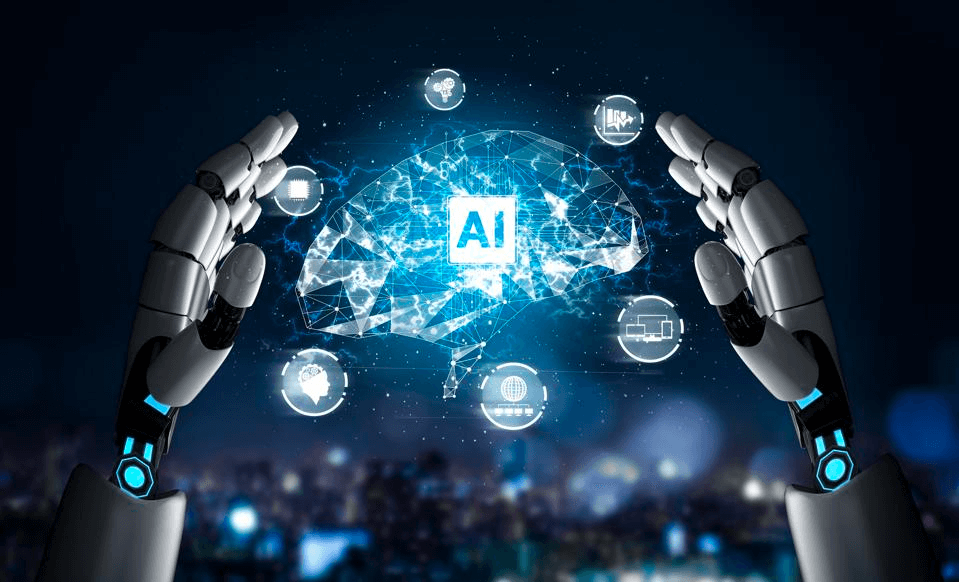
With the advent of modern technology, the world is rapidly changing at a fascinating pace. The impact is visible in almost every aspect of our lives, including the business sector. Even small businesses are using cutting-edge digital tools to improve and get a leg up on their competition. The field service industry is a prime example of this revolution.
Since the introduction of digital tools in field service management, the industry has evolved dramatically. This evolution has further enabled field service businesses to enhance their profitability, productivity, and customer experience at a surprising rate. And the trend indicates steady growth. What first started with simple software solutions such as accounting software and database management is now overtaken by fascinating tools like field service management software and cloud storage technology. And the evolution does not end there. The latest phenomenon in the field service industry has created quite a stir, and it is one of the most fascinating emerging technologies of our time—artificial intelligence.
If you have been a part of this industry for some time now, you are bound to catch the buzz in recent times. But what is artificial intelligence? Why is it gaining popularity in this sector? How is it changing the traditional methods of field service? What will impact the industry in general? If these are some of the questions that must have occurred to you, you have come to the right place. This article will try to answer these questions for you and help you understand how this emerging technology can be your biggest advantage in the coming years. So, without further ado, let’s start exploring.
What is Artificial Intelligence?

Artificial intelligence (AI) is a broadly used term. From a wider perspective, it is a combination of process automation and machine learning based on data. In essence, artificial intelligence is defined as when machines mimic or simulate human intelligence for tasks related to decision-making and problem-solving. It can be harnessed to optimize processes and drive efficiency across any organization.
How Does AI Look Like in Field Service?

Businesses worldwide have started investing in AI-driven tools and strategies to accomplish a multitude of objectives. For example, AI can help companies identify buyer needs and market trends before buyers realize themselves. In the space of field service management, the application of artificial intelligence has been equally fascinating.
The most significant changes in field service management that AI has brought about could be seen in the aspects of customer experience and productivity. In a traditional field service organization environment, employees are regularly trying to coordinate their respective activities with other staff. During this process, they continually need to switch between computers and paperwork when trying to complete a task together. This could be cumbersome and put stress on the staff. Moreover, the complex nature of the process always leaves room for error. Either way, it could potentially reduce the efficiency and overall quality of service.
This is where AI is playing a pivotal role. Several tasks in field service management, particularly the repetitive ones, could be delegated to AI-driven solutions. This not only reduces pressure on the technicians but also minimizes the chance of error throughout the process. At the same time, using AI instead of manual processes would increase worker safety, add transparency to the process, and help the operation run more smoothly.
The most remarkable impact of AI in field service, however, has been the introduction of predictive operations. The traditional model of field service necessitated assessing, diagnosing, and finally resolving malfunctions in the machinery or equipment. Since the introduction of AI-driven tools, standard practices have undergone an overhaul.
Today, AI can predict what and when problems may occur well ahead they occur. It can even estimate when a machinery or part would require maintenance and repair. Thus, it can help technicians avoid major mishaps and risk factors. Moving ahead, some AI-based tools can also schedule inspections and provide detailed insights into the potential risk, helping business owners and managers optimize their resource plans for the task. As such, AI has been a huge help in automating field service management.
In a nutshell, implementing artificial intelligence in field service management has had a noteworthy impact on overall efficiency and productivity, thus leading to higher profitability for field service companies.
Let us now have a deeper look into the benefits of AI being implemented in field service management.
What Changes Has AI Brought in Field Service?
Job Scheduling
Perhaps the biggest challenge in field service management is dispatching the right technician to the right job. You need to identify the nature of the problem and find the ideal technician who possesses the required skills and experience to fix it on the first attempt. You will also have to take into account technician availability. This is time-consuming and arduous. However, this has been simplified by automation. AI-powered scheduling and dispatching software can find the right technician for the job in seconds. This helps save valuable time in the backend administration as well as ensure efficiency all around.
Customer Service
AI-powered tools have been a huge help in improving customer satisfaction. For example, AI-based customer service software can identify repeat customers by their voice or address without them having to reintroduce themselves. It also helps identify the correct historical data for the customer, saving you the time and hassle of looking for past service information. Besides, service companies are also using contextual conversational tools where AI-based chatbots can hold conversations with the customer, freeing up your support staff to grapple with more critical issues that demand human intervention.
Mobile Inventory Management
Managing inventory is a crucial part of resource optimization for field service companies. Customers have every right to be dissatisfied if they are provided with inferior-quality parts or if the tools used in the project are not up to the mark. This also deters the service quality of the field technicians, affecting productivity and efficiency. However, thanks to AI-based systems, inventory management has significantly improved. These tools can predict the problem well ahead, guiding the manager/business owner on what parts, tools, or equipment will be required long before the appointment. This also gives them enough time to plan and check the quality of the items.
Time-Tracking
AI-powered tools have also been a huge help in maintaining attendance and time-tracking. With AI-driven work order management software solutions, it is now much easier for managers or business owners to keep track of their technicians’ attendance, availability, and on-duty timing. Knowing the whereabouts of your staff accurately is a huge help when it comes to planning and organizing your work orders, especially when it is field service.
Communication and Remote Collaboration
Mobility is a crucial element in effective field service. It enables better coordination between field technicians and the backend staff. This helps businesses seamlessly execute tasks. AI programs can help these two sets communicate in real time, thus improving remote collaboration. This instant connectivity further eliminates errors and yields better customer service outcomes.
Final Thoughts
As artificial intelligence keeps predicting future actions and recommending potential solutions, field service businesses can better prepare for the future needs of their customers, estimate expenses, and deliver improved service. In general, this cutting-edge invention has assisted businesses to achieve higher standards in regard to efficiency, productivity, and customer satisfaction. Eventually, the combination leads to increased profitability and simplified operations.
However, this is only the beginning. Experts forecast artificial intelligence is going to be a deciding factor in the success of field service businesses. It has already played an important role in accelerating automation in the service industry. Further, it is going to usher in paradigm shifts when coupled with emerging technologies such as mixed reality, big data, and deep learning. At this point, the future looks very promising, not to mention exciting. So, if you want to be a part of this fascinating tomorrow, it is high time to jump on the wagon.

Author Bio: Joy Gomez
My world is made up of codes. It is the central element that drives my universe. I am a self-taught, process-driven programmer with a creative bent of mind. Since I was an engineering student, I dreamt of creating something unique. To satiate my creative appetite, I took to coding. Blessed with abundant support and generous scholarships from my employers, I simultaneously worked full-time and pursued my dream. My passion and high productivity helped me in my journey as well. Finally, I created Field Promax to follow my drive of coding and streamlining processes; and do more of what I know best—coding.